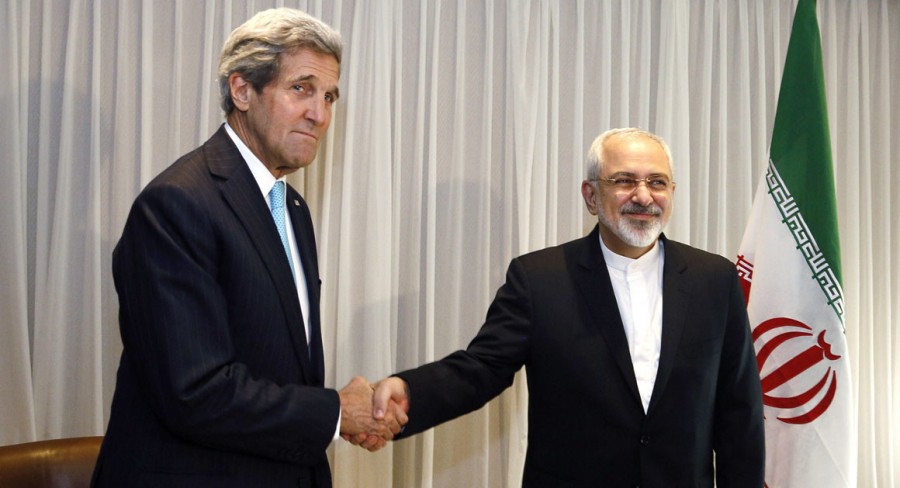The Iran Nuclear Deal (For Dummies)
November 19, 2015
The Iran Nuclear Deal, negotiated by president Obama and Secretary of State John Kerry passed this fall. The deal may prove to be one of the most important pieces of foreign policy during President Obama’s tenure, alongside assassinating terrorist Osama Bin Laden. President Obama sees this deal as a way to keep Iran from gaining nuclear capability.
If Iran were to gain this capability, it would make all foreign policy in the Middle East extremely high stakes. If the US or any of our allies were to anger the Supreme Leader of Iran, Ayatollah Ali Khamenei, Iran would have the ability to plunge the whole world into a devastating nuclear war. Iran was very reluctant about making this deal, but were being pressured by the economic sanctions that America and it’s allies had been imposing.
The Deal itself is 159 pages long and lays out, in a very detailed manner, how the Iran government will be stopping or slowing down their efforts to achieve nuclear capability. Uranium (the most important part of a nuclear weapon) is enriched (which means that it can be used in a nuclear weapon) by using centrifuges.
Centrifuges are big machines that spin really fast, separating the uranium into different pieces and preserving the enriched portion. The deal shuts down approximately three quarters of Iran’s centrifuges (from 20,000 to 5,000-6,000). The centrifuges left in operation will be Iran’s oldest and least efficient ones, making it much harder to enrich the uranium.
The Iranians are only allowed to enrich uranium to 3.67%, a low level of enrichment that is only useful for running nuclear power plants. A nuclear weapon requires uranium enriched to about 90%. Iran was also enriching weapons-grade plutonium, an alternative to uranium, at one facility. Iran is still allowed to use this site, though it is being repurposed to only enrich plutonium to levels to fuel-grade levels, used at power plants.
Iran’s existing uranium stockpile, about 10,000 Kilograms, will be reduced by 97% to 300 Kilograms. Additionally, Iran is only allowed to use certain facilities to enrich their uranium; these facilities are considered to be their best and most secure.
The deal relies on comprehensive inspections by the International Atomic Energy Agency (IAEA) to enforce Iran’s part of the deal. The IAEA get to inspect everywhere from reported facilities to other places they think are suspicious. Iran is able to maintain sovereignty over some sites, but the inspectors will ultimately be able to get access if they feel it is necessary.
Should the U.S. think that Iran is not keeping up their side of the deal, they can report it to the UN Security Council. The sanctions which were in place prior to the deal would automatically “snap back” into place unless a majority of the council thinks that Iran wasn’t cheating. The way the language and procedure for this part of the deal is structured makes it very hard for Iran, Russia, or China (the closest thing to allies Iran has on the Council) to vote to keep the sanctions off.
The sanctions will start to come off shortly after Iran fulfills their part of the deal, and the economy of Iran will start to feel the positive effects in just a few months. This process is being delayed however, because the deal has yet to be fully implemented.
20 months of negotiation concluded in July and, following this conclusion, Americans have been split on whether or not this deal is a good one. Republicans were overwhelmingly against the deal and launched a resolution to kill the deal. Congress has a limited say in foreign policy though, and the deal passed. Only 41 Democrats were needed to crush the Republican-led resolution, which Obama was able to achieve. If he did not get the support from congress, Obama would have been able to veto the resolution anyways, but that would have swayed public opinion towards thinking that the deal was not good for the country.
The argument for the deal, led mostly by Democrats, is that the deal keeps Iran from gaining nuclear capability for ten years, the length of the deal. Proponents of the deal say that maintaining the sanctions would be counterproductive, as the Iranians would have been able to continue work on their capability during this time. The deal is also designed so that even if Iran breaks out of it, it will take them almost a full year to get back to where they were in terms of enriching uranium and their ability to launch a missile.
The opponents of the deal think that there is too much freedom within the confines of the deal. They think that Iran will be able to come close enough to achieving capability that, once the deal runs out, it will take virtually no time for them to have achieved full nuclear capability. They also think that it is a sign of weakness for the American government to make concessions to a state such as Iran, a theocratic and dictatorial state, which may or may not be aiding terrorists and other opponents of America. They believe that Obama went to the negotiating table too early, and that it would have been possible to let our sanctions gain us more leverage before starting to talk about a deal.
The opponents also point out that Obama backed away from the objectives that he had publicly said he was going to pursue. The deal also does not have any penalty for testing missiles themselves, it simply says that, once implemented, it will “call upon” Iran to refrain from working on ballistic missiles, which is in tune with current UN resolutions on the matter. The U.S., Germany, Britain, and France are bringing up Iran’s testing of a ballistic missile at the UN. this week.
This deal will prove to be a defining point in President Obama’s presidency; it remains to be seen whether it will impact the way he is remembered positively or negatively. Ten years is a long time, and a lot can change during this time. The Deal has divided Washington, DC., and I feel confident that it will do the same in the future when politicians and analysts are deciding whether it was a success or a failure. If Iran gains nuclear capability, opponents will say it is because of the deal and supporters will say the deal delayed the inevitable fact that Iran was going to become nuclear capable anyway.






